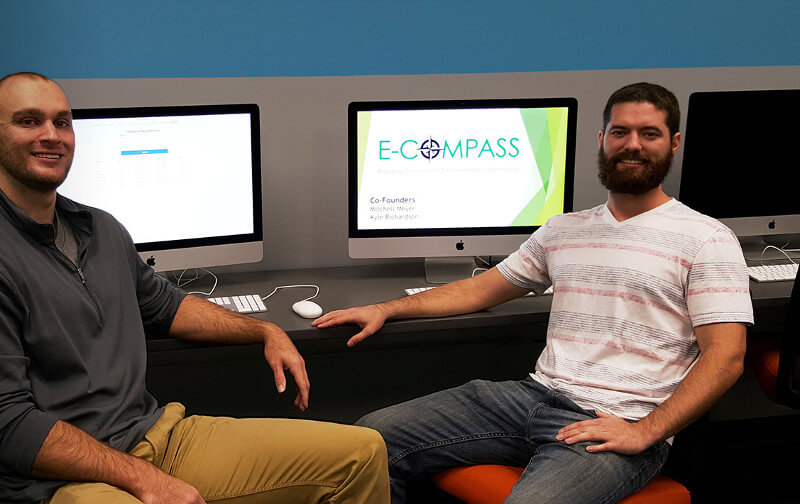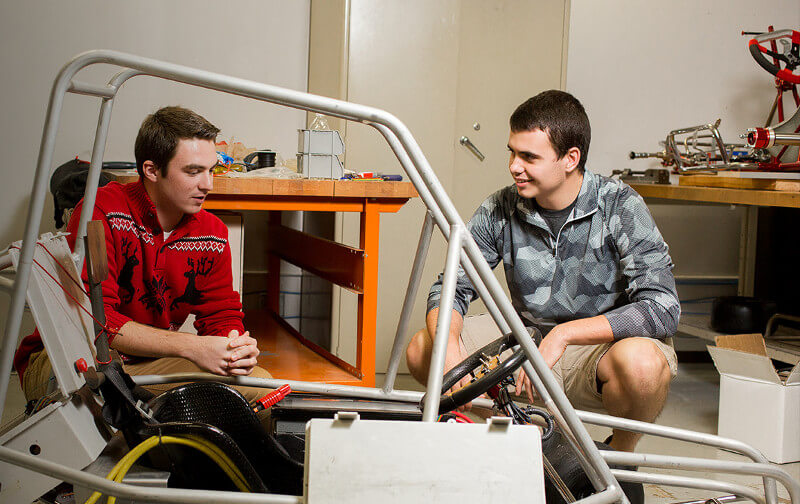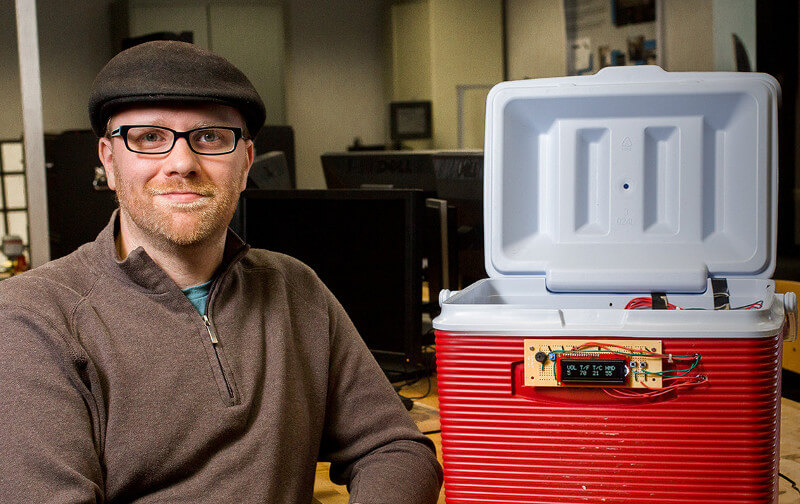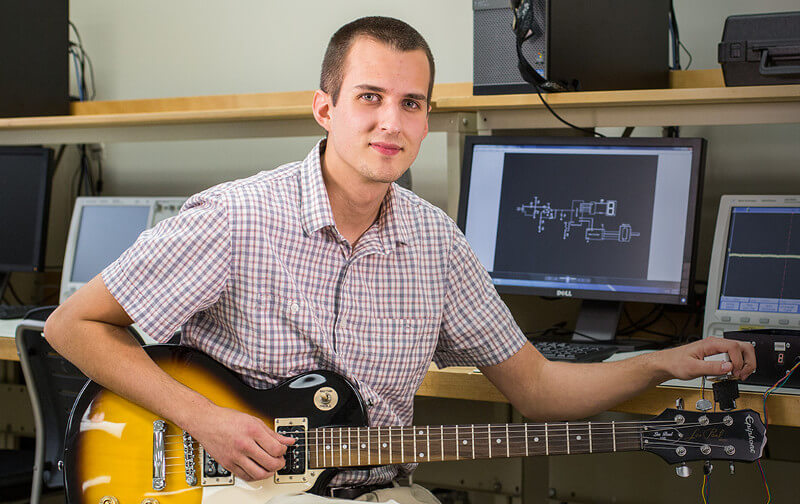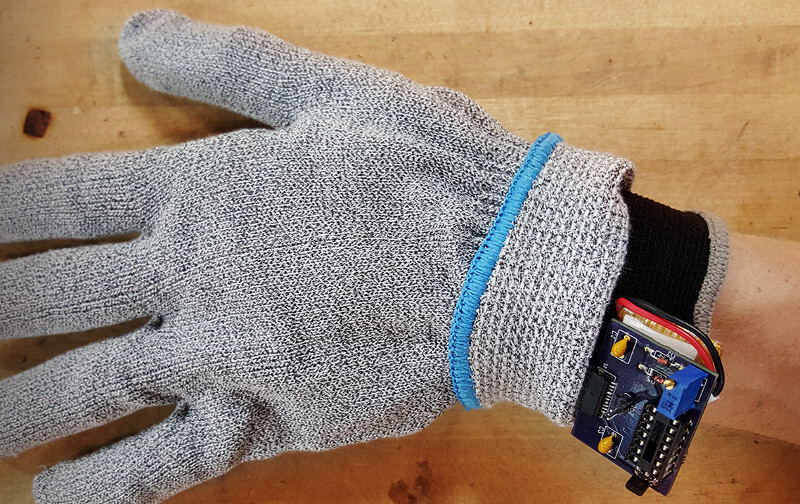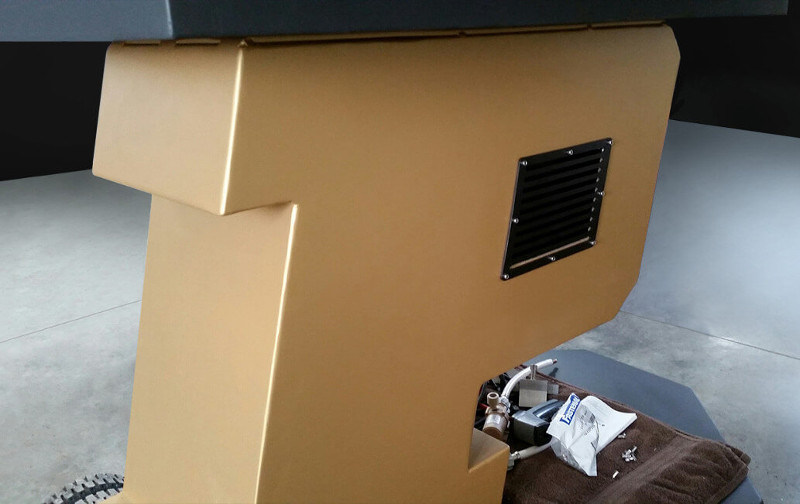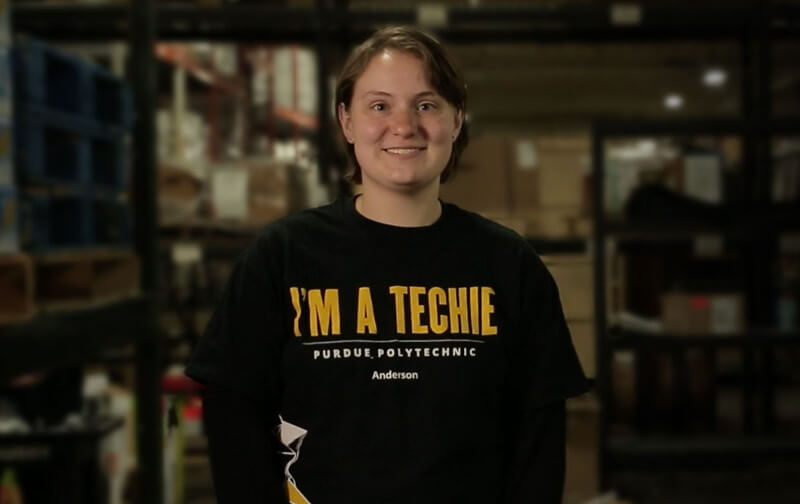DISCOVERING A PASSION FOR GREEN TECHNOLOGY
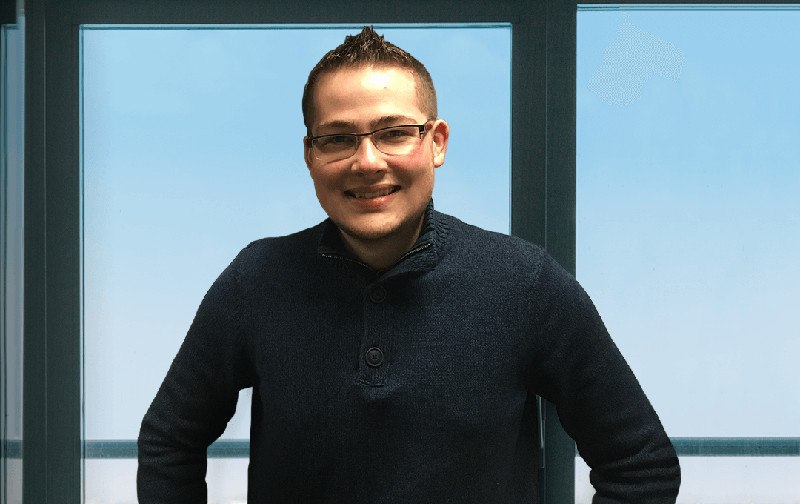 If you told Adam Kickbush that he’d find his life’s passion because of the Boy Scouts, he’d probably laugh. But that’s what happened.
If you told Adam Kickbush that he’d find his life’s passion because of the Boy Scouts, he’d probably laugh. But that’s what happened.
After graduating from high school in 2012, Adam had no firm career plan so he enrolled in general studies at a local college. When friends attending Purdue Polytechnic South Bend shared stories of what they were doing, he was intrigued. They weren’t just learning engineering theory; they were deep into hands-on projects. It wasn’t long before Kickbush transferred to Purdue Polytechnic, enrolling in engineering technology, one of seven technology-focused programs at the South Bend location.
“What I like is that it’s a customizable degree that gives me a foundation in all types of engineering: structural, electrical, industrial, mechanical and organizational,” Kickbush explained. “Another plus is the faculty. They really invest in you.”
One of those who invested in Kickbush is John Piller, an assistant professor who teaches electrical power and controls. He came to Kickbush and another student Aaron Sprunger with an idea for their senior capstone project: create a passive solar heating panel that would allow Boy Scout camps to inexpensively heat water and reduce camp operating costs. Senior capstone projects are part of a two-semester class during which students take a company or technology from concept through possible commercialization.
Adam, a former Cub Scout, and Sprunger agreed to take the assignment under Piller’s mentorship. Much of the first semester has been spent studying the feasibility of a passive solar water heating system. Initially, they believed the best approach was a do-it-yourself kit for Boy Scouts to build their own systems. Their research showed this approach was complicated so they turned their attention to building a more turnkey prototype.
“Data collection and analysis has been a big part of determining the return on investment of our project,” Kickbush said. “We want to know if the cost justifies the system before installing it at a camp.”
In September, they applied for Commercialization and Research Grant (CRG) funding. They were one of six teams selected to receive a grant made possible through Purdue Polytechnic. The money will go to build a prototype to be installed at Tamarack Camp in Michigan and allow for remote monitoring of the system for further validation.
For Kickbush, funding for the passive solar water heating system wasn’t the only reward. Finding his passion was. “When I started at Purdue Polytechnic, I had no idea what I wanted to do career-wise. Now I know I want to go into green technology. Purdue Polytechnic gave me focus, the project for the boy scouts brought out my passion,” he said.

